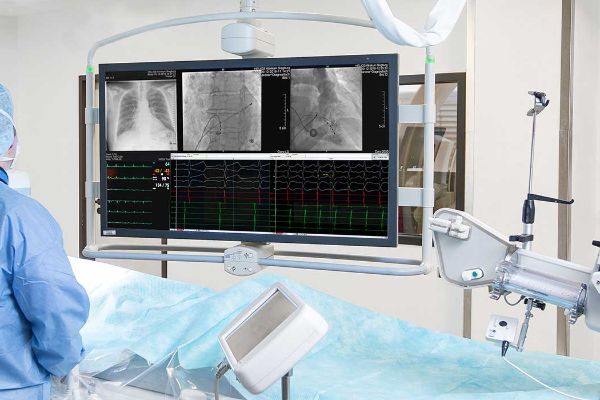Between human and machine – working in healthcare in 2030
The digital revolution is still in its infancy in Germany. Over the coming decades, the growing use of digital technologies will change working methods and training requirements in care and healthcare. Further developments are expected by 2030, including intelligent prostheses and orthoses, AR glasses for capturing patient data, and exoskeletons for care staff that make it easier to lift patients.
Consequently, the demands on doctors, nurses, hospital managers and other hospital staff are growing, with digital savvy and a willingness to undertake life-long learning becoming key skills in healthcare. Are companies and employees ready for these changes? According to the findings of the D21-Digital-Index, they are not.
Digital pressure, but little input – the onus is on employers
More than 30 percent of respondents stated that they feel overwhelmed by the pace of change and the complexity of digitalization. For the over-50s age group it is 42 percent. But only 15 percent of employers provide training on digital technologies. Even fewer offer mobile working or allow employees to work from home. Only 16 percent of respondents are able to take advantage of these modern working methods. As a result, employees are still mainly teaching themselves digital skills outside of work. Employers need to do a lot more to bridge this skills gap.
Promoting digital skills through Employer Benefit Solutions is an investment in the future
"Healthcare providers have to play a bigger part in helping their employees make use of digital technologies if they want to safeguard their future competitiveness," says Peter Krause, Head of Healthcare Sector Sales Germany at CHG-MERIDIAN. Developing digital competence can unlock efficiency gains in day-to-day medical work, and employee programs can increase healthcare providers' attractiveness as innovative employers. Put simply, promoting the digital skills of the workforce can provide a competitive edge.
Options for employee training include customized business concepts for mobile devices and systems, known as Employer Benefits Solutions. An Employee PC Program where employers make the latest communications devices available to their staff for private use, is an Employer Benefit Solution that can increase digital skills and enable mobile working.
CONTACT ME NOW!
I am looking forward to talking about D21 and healthcare with you.
Frank Schöneberg
Vice President Public Sector & Healthcare Sales
- CHG-MERIDIAN AG
- Hans-Böckler-Str. 33
- 40476 Düsseldorf
- +49 211 55727-60
- +49 170 9813149
- frank.schoeneberg@chg-meridian.com



